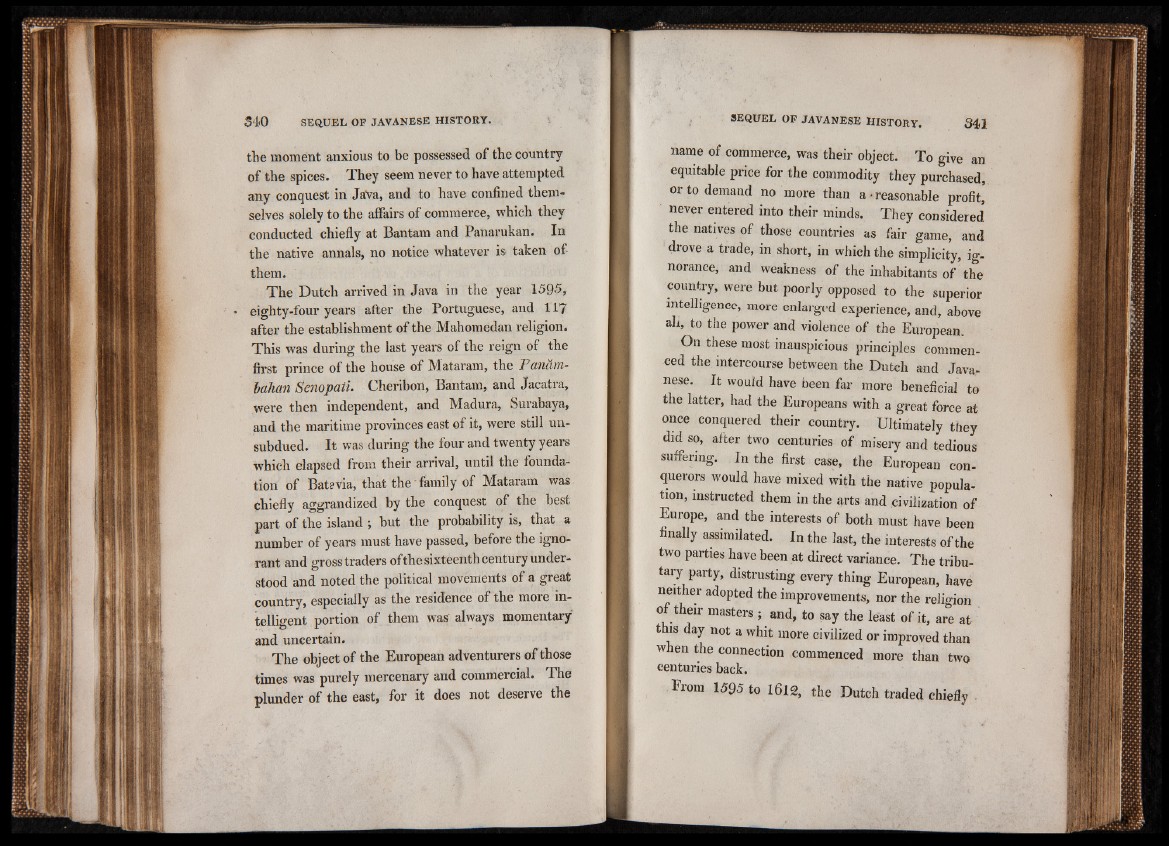
the moment anxious to be possessed of the country
of the spices. They seem never to have attempted
any conquest in JaVa, and to have confined themselves
solely to the affairs of commerce, which they
conducted chiefly at Bantam and Panarukan. In
the native annals, no notice whatever is taken of
them.
The Dutch arrived in Java in the year 1595,
• eighty-four years after the Portuguese, and 117
after the establishment of the Mahomedan religion.
This was during the last years of the reign of the
first prince of the house of Mataram, the I7anam-
bahan Senopaii. Cheribon, Bantam, and Jacatra,
were then independent, and Madura, Surabaya,
and the maritime provinces east of it, were still unsubdued.
It was during the four and twenty years
which elapsed from their arrival, until the foundation
of Batevia, that the' family of Mataram was
chiefly aggrandized by the conquest of the best
part of the island ; but the probability is, that a
number of years must have passed, before the ignorant
and gross traders of the sixteenth century understood
and noted the political movements of a great
country, especially as the residence of the more intelligent
portion of them was always momentary
and uncertain.
The object of the European adventurers of those
times was purely mercenary and commercial. The
plunder of the east, for it does not deserve the
name of commerce, was their object. To give an
equitable price for the commodity they purchased,
or to demand no more than a reasonable profit,*
never entered into their minds. They considered
the natives of those countries as fair game, and
drove a trade, in short, in which the simplicity, ignorance,
and weakness of the inhabitants of the
country, were but poorly opposed to the superior
intelligence, more enlarged experience, and, above
all, to the power and violence of the European.
On these most inauspicious principles commenced
the intercourse between the Dutch and Javanese.
It would have been far more beneficial to
the latter, had the Europeans with a great force at
once conquered their country. Ultimately they
did so, after two centuries of misery and tedious
suffering. In the first case, the European conquerors
would have mixed with the native popula-
tion, instructed them in the arts and civilization of
Europe, and the interests of both must have been
finally assimilated. In the last, the interests of the
two parties have been at direct variance. The tributary
party, distrusting every thing European, have
neither adopted the improvements, nor the religion
of their masters ; and, to say the least of it, are at
t is day not a whit more civilized or improved than
when the connection commenced more than two
centuries back.
From 1595 to 1612, the Dutch traded chiefly